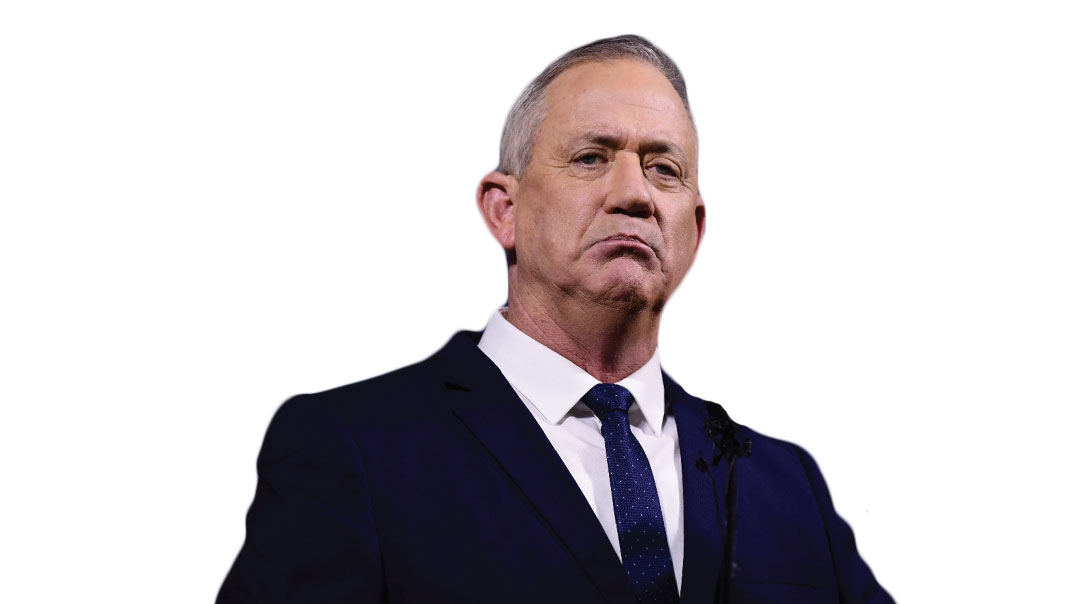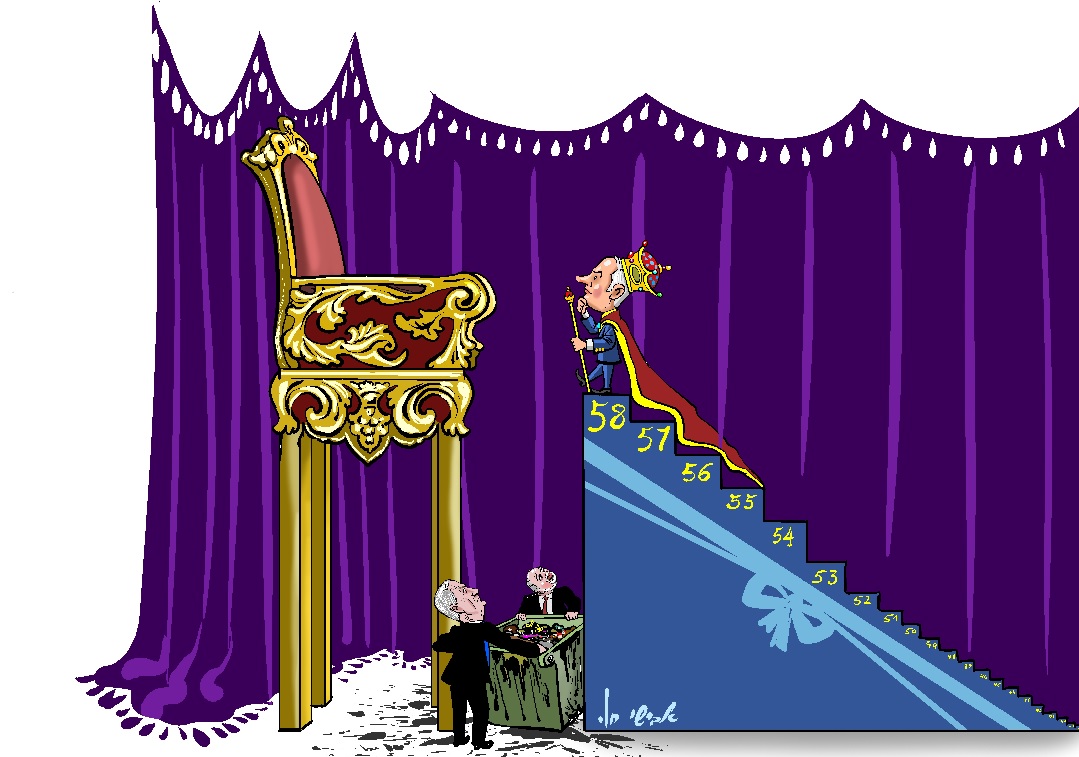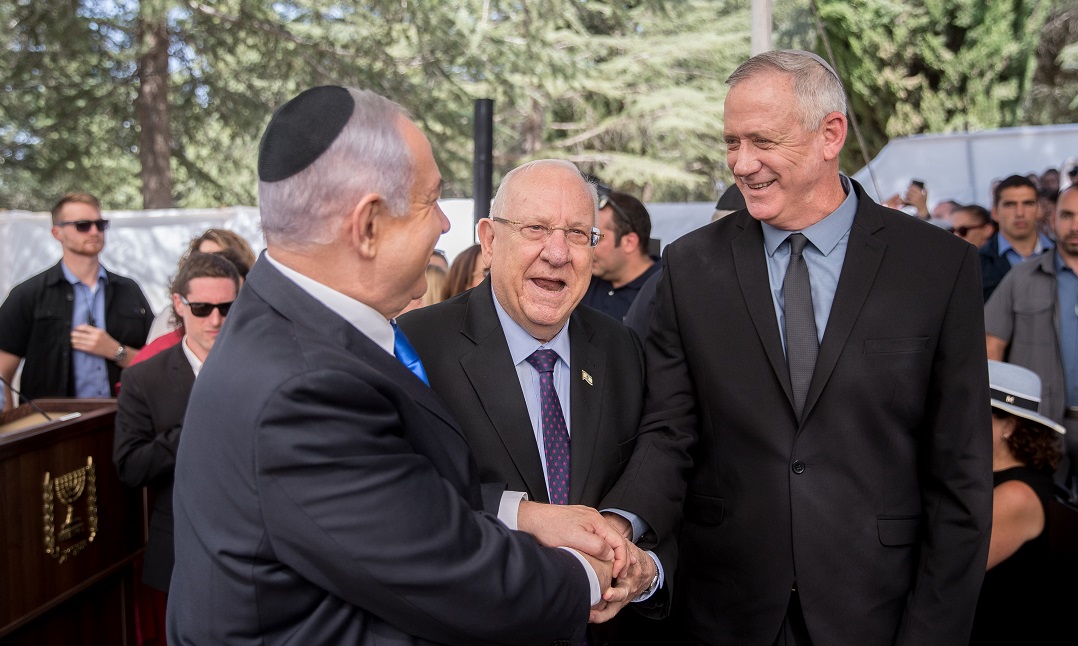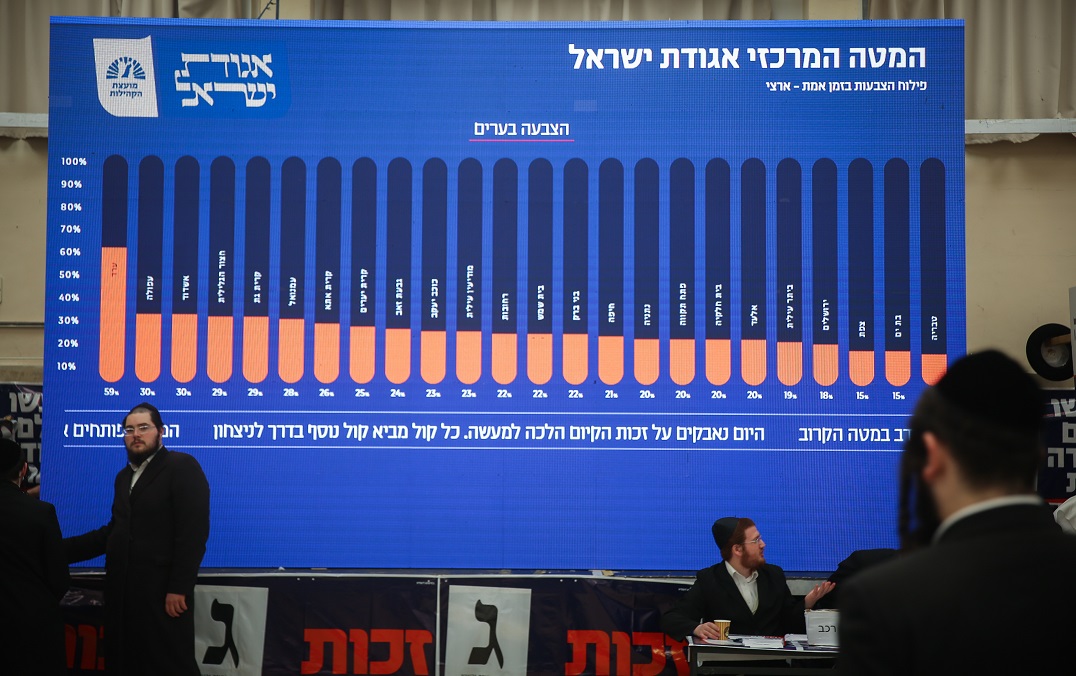The Center Left: So Close, Yet so Far

The two camps couldn’t be more divided, and enough voters switched sides to shift the balance of power

The election results were a disaster for the center-left bloc and its aspirations to replace Prime Minister Binyamin Netanyahu.
The center left ran a much weaker campaign for this third election than it ran in September, and the result reflects the deeply polarized state of Israeli society. The two camps couldn’t be more divided, and enough voters switched sides to shift the balance of power.
While the elections last April were the first in over three years, and were fought over important issues, in September there were fewer issues, fewer parties, and lower energy levels. The only question that remained was “Bibi or not Bibi.” This time around, the dynamic only intensified. It seemed that few were paying attention as politicians spread their mutual smears. The daily newscasts began with updates about the spreading coronavirus, and for the first time, election coverage was relegated to the end of the broadcasts. In the end, the electorate was more energized than expected.
The Arab Joint List seemed to have improved its standing by a seat or two, based on exit polls at press time; there was a consensus that the Trump peace plan would drive up their turnout.
It was a wipeout for the satellite party of the center left, Labor-Gesher-Meretz. In the previous election in September, when they ran separately, those parties held 11 seats. In these elections, projections at press time show that they won only seven or eight seats as a united ticket.
The union of Amir Peretz, Nitzan Horowitz, and Orly Levy-Abekasis was a dream lineup just one year ago. A union of different social classes and different political views — unquestionably the most diverse and attractive party the left could conceive. Elements in both parties have been pushing this alliance for 20 years. In the April elections, it could easily have won 15 seats.
Two rounds later, the public is fed up and just wants a functioning government. The whole playing field is tilted toward the two big parties. Those who voted “not Bibi” went with Gantz. In fact, the union between Labor and Meretz actually damaged the center left, because it freed voters of the responsibility of helping the individual parties cross the threshold. The moment some voters realized the party was not in danger of missing the threshold, they crossed over to strengthen Gantz — or the Arab Joint List.
Blue and White ran a terrible campaign. At first things looked promising: Netanyahu was formally indicted, and a date was set for his trial two weeks after the election. Gantz even managed to secure a private meeting with President Donald Trump, posing for a picture as the two men shook hands.
But as in the cartoons when Donald Duck plunges into the depths, waving his wings happily until he looks down and realizes that he’s falling, Gantz ran out of steam quickly. Instead of generating momentum and creating a campaign around the rule of law and fighting political corruption, Gantz’s campaign stood paralyzed as Netanyahu seized control of the political narrative and dictated the daily headlines.
Netanyahu pummeled his opponent mercilessly. Some of the attacks were legitimate, in the context of politics, but some were decidedly below the belt. There were insinuations that Gantz wasn’t mentally fit to hold the office of prime minister, and similarly veiled smears about his personal life. A leaked recording of one of his advisors expressing doubt about Gantz was either an honest assessment or a cleverly planned smear.
Gantz, instead of pushing back at the often outlandish allegations, went on the defensive, and found himself explaining on national TV, five days before the election, that he didn’t have dementia. The fact that reporters felt comfortable asking such questions of a former IDF chief of staff is a testament to Gantz’s weakness. The investigation into a company he once led, Fifth Dimension, certainly didn’t win him votes.
He did partially shake out of his slumber five days before the election, going on the offensive with a campaign equating Netanyahu with Turkish strongman Recep Tayyip Erdogan, while making it clear that he’ll never sit with Netanyahu, in a move designed to peel off more support from Labor-Gesher-Meretz. But in the end, it was too little, too late.
(Originally featured in Mishpacha, Issue 801)
Oops! We could not locate your form.













